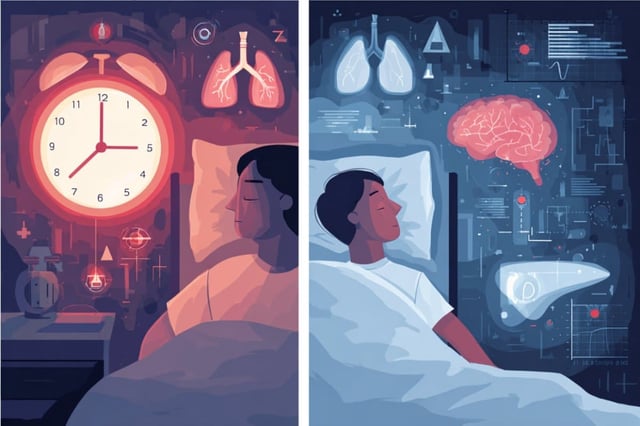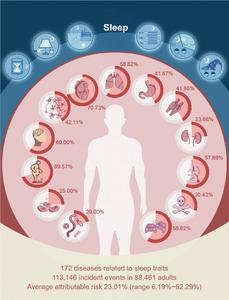Overview
- Researchers analyzed actigraphy data over 6.8 years from 88,461 UK Biobank participants to examine the health impacts of multiple sleep traits.
- Bedtimes after 12:30 a.m. carried a 2.57-fold higher risk of liver cirrhosis, while low circadian stability raised gangrene risk by 2.61 times.
- Poor sleep regularity accounted for more than 20 percent of disease risk in 92 conditions such as Parkinson’s disease and type 2 diabetes.
- Objective measurements debunked the long-sleep health myth by showing that over 20 percent of self-reported long sleepers actually averaged under six hours of sleep.
- Validation in U.S. cohorts and links to inflammatory markers suggest that improving bedtime consistency could be a target for chronic disease prevention.



